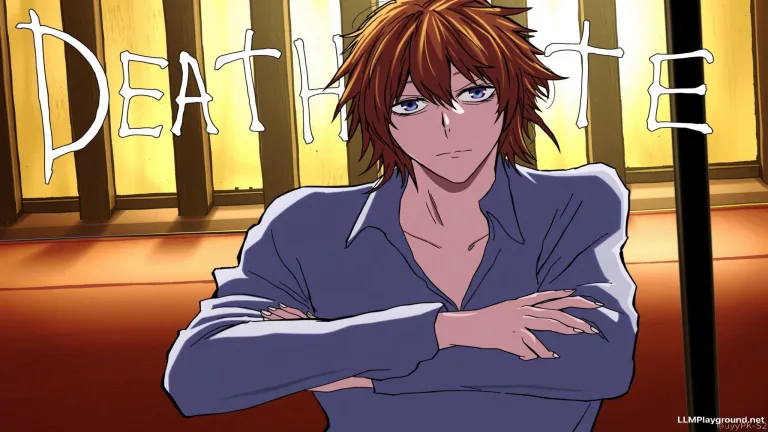
Introduction
In the world of Death Note, the battle of wits between Light Yagami and his confidants is a gripping tale of morality and justice. When Light’s reign as the God of the New World comes to an end, the question arises: who could possibly fill the void he left behind? Enter Teru Mikami—a character who not only embodies Light's ideology but also possesses a singular devotion to the cause. Chosen as Light’s successor, Mikami is often seen as a faithful disciple who seeks to carry on Light's legacy after his demise. His unwavering dedication to the Death Note and his distinctive perspective on justice make him a complex character deserving of deeper analysis. In this blog post, we'll delve into the traits and motivations that led to Teru Mikami being chosen as Light's successor. By examining his actions, beliefs, and similarities to Light, we aim to uncover the reasons behind this pivotal decision and what it signifies for the overarching narrative of Death Note. Whether you’re a long-time fan or exploring this dark and captivating series for the first time, understanding Mikami's role is essential in grasping the intricacies of Light's lasting influence. Join us as we analyze pivotal moments that shape not only Teru Mikami’s character but also the fate of the Death Note world.
The Unlikely Successor: Teru Mikami
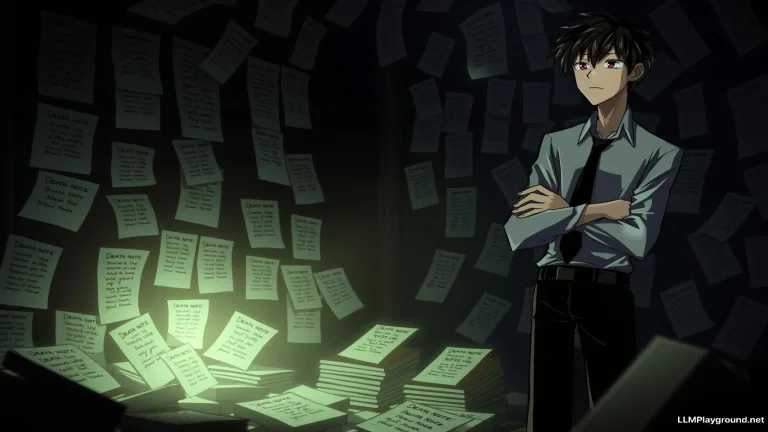
In the myriad of characters presented in Death Note, Teru Mikami stands out as an unexpected yet fitting successor to Light Yagami’s legacy. At first glance, Mikami’s rigid personality and unwavering loyalty to Kira might seem one-dimensional, but upon deeper inspection, he embodies the necessary psychological traits to carry on Light’s mission. Mikami's fervent belief in justice, albeit twisted, aligns perfectly with Light's vision, making him an ideal choice. His work as a prosecutor imbues him with a strong sense of morality, albeit manipulated by Kira's ideology, allowing him to approach the task with the necessary zeal and commitment. Moreover, Mikami’s blind devotion to Kira signifies the culmination of Light's influence, showcasing how charismatic authority can mold an ordinary individual into an extraordinary agent of chaos. Mikami's character serves as a grim reminder of how ideologies can be warped, thereby creating a compelling narrative arc. By choosing Mikami as the successor, the writers not only maintained continuity in the storyline but also deepened the ethical dilemmas posed by the Death Note itself. The complexities of his character challenge readers to reflect on the blurred lines between justice and vengeance, echoing the themes established throughout the series.
Kira’s Vision: The Chosen Path
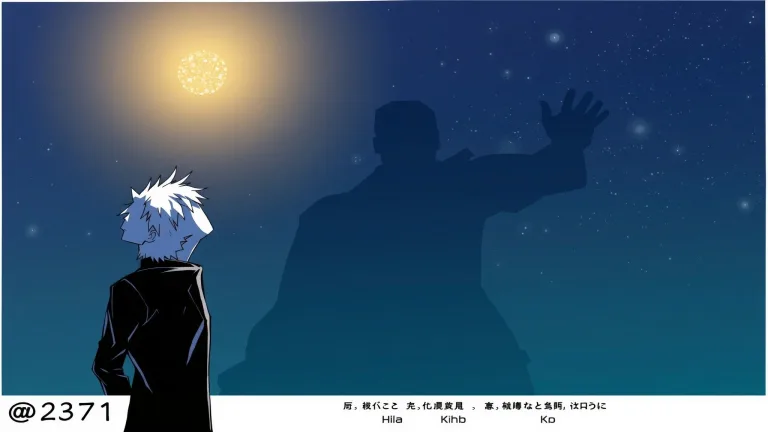
In the world of Death Note, Kira, the alias of Light Yagami, harbors a radical vision of justice that transcends traditional moral boundaries. He believes in creating a utopia, free from crime, by eliminating all those he deems unworthy of life. This relentless pursuit of a ‘better world’ set the stage for the rise of Teru Mikami as Light’s successor. Mikami embodies the fervent devotion to Kira’s ideals, making him an ideal candidate to carry forward Light's legacy. With his unwavering belief in Kira's vision, Mikami becomes a conduit through which Light's ruthless ideology can continue to flourish, albeit with a zeal that mirrors Light’s own fanaticism.
Mikami’s character development reflects the profound impact that Kira’s philosophy has on his perception of justice. Unlike many who are swayed by emotional impulses, Mikami's personality aligns perfectly with the cold, calculated tenets of Kira's mission. His background as a prosecutor plays a critical role as it shapes his views on law, order, and morality. This alignment effectively transforms him into an extension of Kira's will, illustrating why Light chose him as his successor. Their shared commitment to a higher justice, coupled with Mikami’s exceptional intelligence and skills, showcases a seamless transition of power—a testament to Kira's vision living on through others who share his ideology.
The Flawed Justice of Teru Mikami

Teru Mikami represents a complex embodiment of justice within the Death Note series. His unwavering adherence to Kira's ideals sets him apart as a character of depth and contradiction. While his intentions are grounded in a desire to eradicate evil, his methods reveal a darker side that raises ethical questions about justice and morality. This duality is what ultimately makes him a suitable successor to Light Yagami, who shared a similar obsession with creating a world free from crime, albeit through a more calculated and manipulative approach. Mikami's belief in Kira's doctrine places him firmly on the path of a flawed vigilante, reflecting the show's central theme that the line between justice and tyranny is often blurred.
What makes Teru Mikami particularly interesting is not just his blind faith in Kira, but his zealous commitment to the cause. Unlike Light, who occasionally shows restraint, Mikami’s version of justice is absolute; there's no room for ambiguity. This moral absolutism makes him a dangerous figure, as he carries the Death Note with a fervor that intimidates even the most devoted followers of Kira. As viewers, we are forced to grapple with the unsettling truth that Mikami's 'justice' can often devolve into ruthless brutality, a quality that eerily aligns him with the very criminals he aims to eliminate. Thus, it is this intricate balance of unwavering zeal and moral complexity that cements Mikami's role as Light's successor.
The Obsession of a Devoted Follower
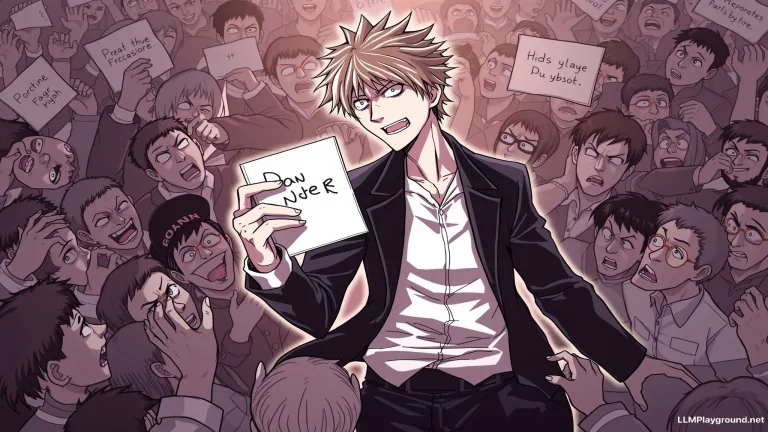
Teru Mikami’s unwavering devotion to Kira is what sets him apart as Light Yagami’s chosen successor in Death Note. Unlike many characters who waver in their beliefs, Mikami embodies the fanaticism that Light seeks in a successor. As a deeply religious individual, he views Kira as a deity and believes that carrying out Kira’s will is a divine obligation. This obsession is fueled by his desire for justice and the belief that Kira’s methods, although extreme, are necessary to rid the world of evil. This intense commitment to Light’s vision reinforces the idea that Mikami is not just a follower; he is a true believer ready to make sacrifices in the name of Kira’s mission. His fanatical loyalty would serve as a means to continue the work that Light started, ensuring a seamless continuation of his ideology and methods. Furthermore, Mikami’s character is marked by his exceptional intelligence and meticulous nature. He mirrors Light’s strategic thinking, making him an ideal candidate for assuming the Kira mantle. Mikami's capacity to plan and execute complex ideas with precision is reminiscent of Light’s own capabilities, creating a parallel that Light would undoubtedly appreciate. Throughout the series, it becomes evident that Mikami’s obsession not only drives him to perform the tasks assigned by Light but also provides him with a sense of purpose. His intense fervor legitimizes Light’s choice, as it assures that the legacy of Kira will persist through someone who shares his vision and relentless pursuit of ultimate justice.
Teru Mikami vs. The World
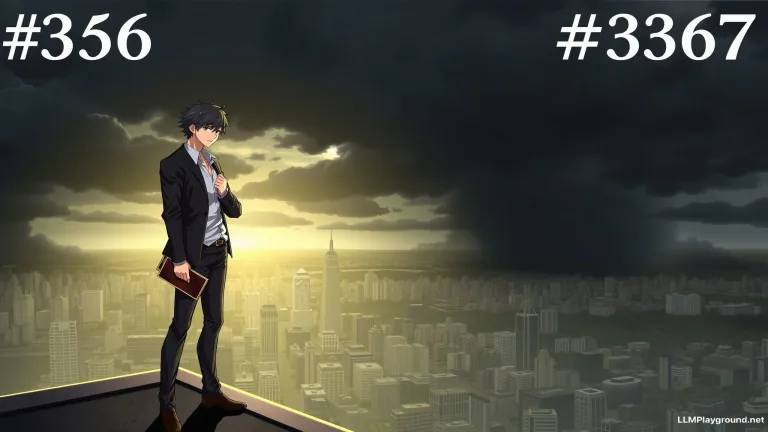
In the intense world of Death Note, Teru Mikami emerges as a pivotal character who embodies the notion of unyielding devotion to Light Yagami's vision of justice. This unwavering loyalty not only makes him a powerful successor but also a formidable opponent against those who oppose Kira's legacy. Mikami, a practicing lawyer, sees Kira as a symbol of ultimate justice, which drives him to take extreme measures in his quest to eliminate perceived evildoers. His single-minded focus sets him apart in the battle for Kira’s ideals, ultimately establishing him as a significant player in this dramatic conflict.
Mikami's methodology contrasts sharply with Light's more calculated approach. While Light employs manipulation and strategy, Mikami acts impulsively based on his deep-seated ideals. This passionate approach reflects a theme in Death Note, highlighting how absolute belief in one’s cause can lead to moral dilemmas and inevitable clashes. The tension created by Mikami’s fervor accentuates the stakes in the struggle against the law enforcement agencies and rival factions seeking to bring Kira down. In doing so, he creates a tension-filled narrative that serves as a reminder of the complexities of justice and the consequences of blind faith in a singular ideology.
The Turning Point: Embracing Kira’s Legacy

In the gripping world of Death Note, Teru Mikami serves as the embodiment of Kira's relentless legacy. His unwavering devotion to Kira, coupled with a strong moral compass, positions him as the ideal successor. Unlike others, Teru doesn't just view Kira as a figure of power; he sees him as a divine entity guiding humanity toward justice. This fervent belief fuels Teru's obsession, leading him to embrace Kira's vision wholeheartedly. His character development highlights an important turning point in the narrative, showcasing the lengths an individual will go to uphold a cause they genuinely believe in.
Mikami’s role as Light Yagami’s successor demonstrates how ideology can shape a person's path. As Light carefully curates Teru’s rise within the Kira ranks, it's this unyielding faith in Kira's ideology that ultimately influences his actions. When given the Death Note, Teru doesn’t hesitate; he executes his judgments with absolute conviction, epitomizing the chilling reality of blind allegiance. His transformation from an ordinary lawyer to a lethal agent of justice presents a critical turning point in the series, one that explores the complexities of morality and the allure of power. Teru's journey raises essential questions about the nature of justice and the consequences of vengeance, causing viewers to reflect on the righteousness of Kira’s cause.
The Power of Conviction: Mikami's Choice
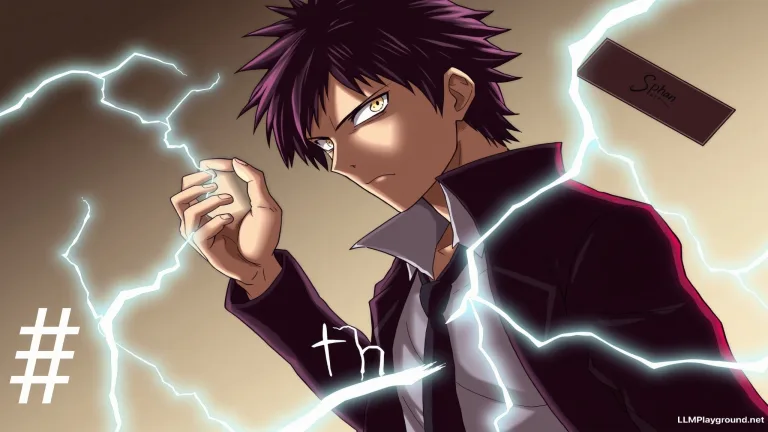
In the world of Death Note, conviction plays a vital role in defining a character’s actions and motivations. Teru Mikami’s unwavering belief in Kira’s vision set him apart as the perfect successor for Light Yagami. Unlike many other characters who flirted with doubt or moral ambiguity, Mikami's fanaticism mirrored Light’s ideals, making him a reliable yet dangerous ally in the quest for a world free from criminals. His zeal not only aligns with Light’s ambitions but also provides the necessary intensity that Light requires in someone who will carry on his legacy.
Moreover, Mikami’s background as a prosecutor added a unique layer to his character. Having faced the injustices of the legal system firsthand, he truly embodies the ethos of Kira, believing that he has the authority to dictate morality. This background infused his character with a sense of purpose that resonates deeply throughout the series. His commitment to Kira's mission shows that he is not merely following in Light's footsteps but is genuinely invested in the same objective—a purified world. Thus, Mikami’s moral conviction and alignment with Light’s philosophy make him not just a follower but a deserving successor in the eyes of Light, illustrating how power and belief converge in the narrative of Death Note.
Light’s Influence: The Shadows of Kira
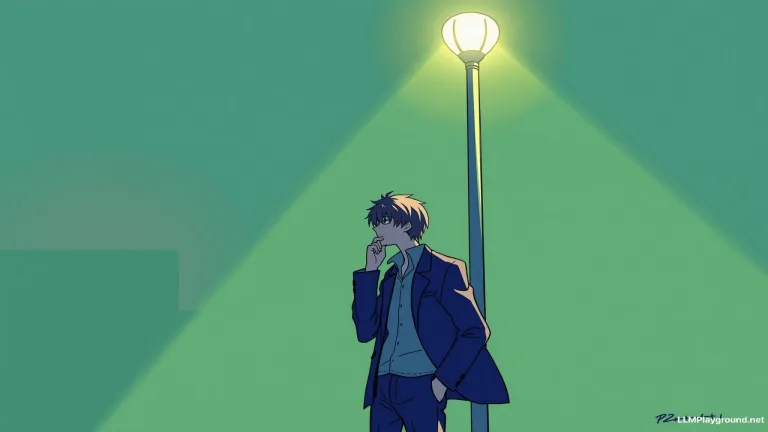
Light Yagami’s influence as Kira resonates throughout the Death Note series, shaping not only his immediate surroundings but also the minds of those who follow in his footsteps. Teru Mikami, a devoted Kira supporter, embodies this influence remarkably well. Mikami’s obsession with Kira is a reflection of the charismatic leadership and dark philosophy Light instills in his followers. This devotion highlights how powerful Light's persona is, as he manipulates and attracts those who long for a sense of justice—albeit one rooted in fear. Mikami’s unwavering belief in Kira’s vision of a 'perfect world' illustrates how deeply Light’s ideals penetrate the psyche of fervent followers who seek to create a legacy in Kira’s name.
Mikami's selection as Light's successor stems from several factors, including his analytical mind, unparalleled loyalty, and moral conviction. Unlike others who may be swayed by doubt or conflicting ideals, Mikami embodies the ruthless approach needed to enforce Light’s ideology. His meticulous nature and willingness to sacrifice for Kira’s cause cement his role as a natural successor. This all leads to the question: what drives a person to become a pawn in a grander scheme? The allure of Kira's absolute power, the promise of reshaping society, and the seductive nature of justice underlies Mikami’s adherence to Light’s vision, making him a pivotal figure in the narrative that questions morality, justice, and sacrifice.
Mikami's Downfall: The Price of Loyalty
Teru Mikami's downfall in Death Note is a stark representation of the perils of blind loyalty. While his admiration for Light Yagami fueled his commitment, it ultimately led to his demise. Mikami's unwavering faith in Kira's vision allowed him to become an essential asset in Light's plans, but it also made him vulnerable. This loyalty was showcased when he meticulously followed Light's orders, often to the detriment of his own safety and moral compass. As he adopted Kira's ideology, he lost sight of his own identity, reducing him to a mere pawn in Light's grand game.
The tragic irony lies in Mikami's fate: he was chosen for his extreme devotion but was unable to perceive the danger that came with serving Light blindly. When faced with the reality of Light's true nature, Mikami's loyalty was quickly turned against him. Instead of being celebrated as Kira's successor, he fell victim to Light's manipulative schemes. His downfall serves as a cautionary tale about the consequences of misplaced faith and the heavy toll that loyalty can impose. It highlights how Mikami's strong convictions led him into an inescapable trap, demonstrating that even the most devoted followers can be discarded when no longer useful to their leader.
Legacy of the Death Note: Kira Lives On
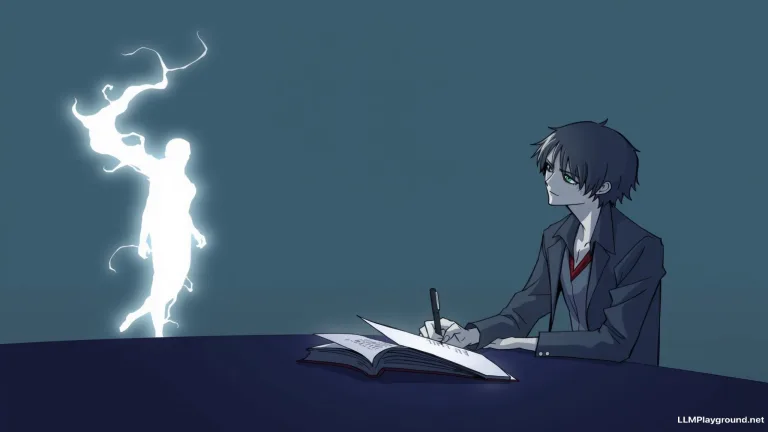
The legacy of the Death Note extends beyond Light Yagami, creating ripples in the world of shinigami and humans alike. Teru Mikami, an ardent follower of Kira's vision, emerges as a crucial figure who personifies the unwavering belief in Kira's ideology. Later in the narrative, Mikami’s deep-seated admiration for Light transitions into a twisted form of devotion, highlighting how charismatic leadership can inspire fervent loyalty and blind faith. Teru's character serves to illustrate that Kira's influence did not end with Light's demise; instead, it continued through those who were deeply impacted by Kira's actions, like Mikami. This manifestation of Kira’s legacy demonstrates how ideology can persist even in the absence of a central figure, stirring both intrigue and chaos in the sequel.
Mikami’s actions reflect a stark, yet realistic portrayal of fanaticism and moral absolutism within the Death Note narrative. By adopting Light’s chilling methods for a new generation, Teru not only steps into Light's shoes but also amplifies the moral complexities that have always been central to the series. His character serves as a reminder that ideals, no matter how glorified or villainized, can give rise to successors, transforming a singular vision into a widespread movement. The continuation of Kira’s legacy through Mikami encapsulates the enduring nature of Light's influence and offers a compelling perspective on how charisma and ideology intertwine, inviting readers and viewers to reflect on the boundaries of morality and justice in their pursuit.
Conclusion
Teru Mikami’s ascension as Light Yagami's successor serves as a critical reflection of the themes that permeate the Death Note series. His character encapsulates the delicate balance between moral ambiguity and the profound consequences of wielding immense power without accountability. Mikami’s unwavering commitment to Light's vision brings both hope and despair into the narrative, proving that the quest for justice can lead to perilous ends. Through his character, we see how easily one can be consumed by ideology, mirroring the tragic downfall of his predecessor. In many ways, Mikami not only continues Light's legacy but also amplifies the cautionary tale of what it means to seek absolute power. The choice of Mikami as Light's successor raises crucial philosophical questions about justice, morality, and the human condition, compelling us to ponder whether such ideals ever truly justify the means. As the story of Death Note unfolds, the implications of Mikami’s actions resonate deeply with viewers, prompting an examination of our own beliefs and motivations. Ultimately, Teru Mikami’s role solidifies the notion that a hero and a villain can often be separated by a thin line, and that legacy, however dark it may be, continues its haunting dance through time.
Frequently Asked Questions (FAQs)
Q: Why was Teru Mikami chosen as Light's successor in Death Note?
A: Mikami's unwavering dedication to Light's ideology and his belief in absolute justice made him a natural successor.
Q: What characteristics does Teru Mikami share with Light Yagami?
A: Both characters exhibit a strong sense of justice, intelligence, and a willingness to sacrifice for their beliefs.
Q: How does Teru Mikami’s role impact the storyline of Death Note?
A: Mikami's actions illustrate the enduring themes of morality and the consequences of power, shaping the narrative's climax.
Q: Is Teru Mikami considered a villain?
A: While his methods are often villainous, his motivations stem from a desire to implement Light's vision of justice.
Q: What philosophical questions does Mikami’s character raise?
A: Mikami provokes discussions about the nature of justice, morality, and the risks of absolutism in the pursuit of a perceived good.
